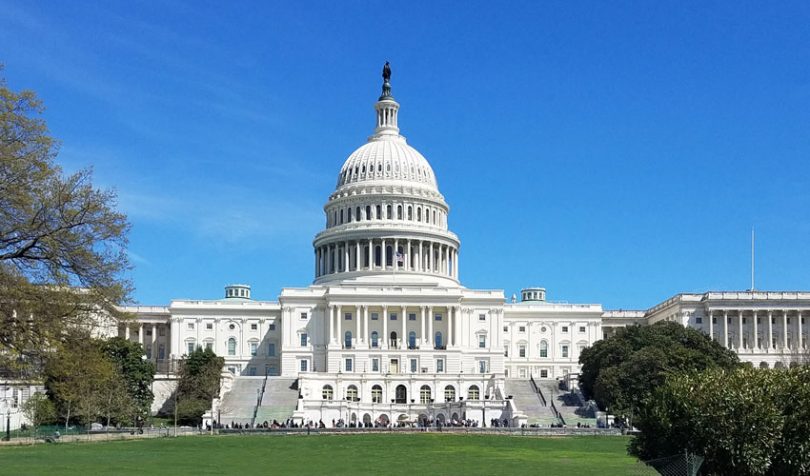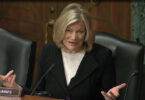Today’s U.S. Senate Banking Committee hearing was about oversight of the Securities and Exchange Commission across all its activities. You’d be forgiven for thinking it was a cryptocurrency discussion, with the topic taking up at least a third of the time.
Clarity
Many of the topics were not new. On the Republican side, Senator Toomey expressed frustration about a lack of public SEC guidance about which cryptocurrencies are considered securities.
“I understand that the SEC’s staff will privately provide feedback and analysis on whether a cryptocurrency is a security. But why is this analysis private?” asked Toomey.
“In other words, how do you apply Howey and the Reves tests to these new products. Why wait to make the SEC’s views known only when it swoops in with an enforcement action.”
He continued, “This is regulation by enforcement and it’s very objectionable. And I’m concerned it can stifle domestic innovation.”
Two weeks ago, Toomey requested legislative proposals on cryptocurrencies and blockchain.
Toomey then asked why a stablecoin is considered a security given it is not directly interest bearing. Hence, he cannot see how the Howey test applies if there is no expectation of profits.
SEC Chair Gary Gensler believes there is a fair amount of clarity given current laws include a broad definition of securities, including a note and an investment contract.
“I’m not negative or minimalist about crypto. I just think that it would be best if it’s inside the investor protection regime that Congress laid out,” said Gensler.
In response to a question from Senator Lummis about innovation more generally, Gensler said he wanted to see the tenets of anti-fraud, anti-manipulation and pro-competition, which he believes will lower the cost of capital for companies raising money.
Investor protection and inclusion
The topic of investor protection and the claims of financial inclusion were front and center for Senator Warren. She said that “the banks have done a pretty lousy job on financial inclusion.” But her examples aimed to show that cryptocurrency is, at best, no better.
She talked about a person with limited funds that put money into cryptocurrencies via Coinbase, and then when prices fell by 10% last week, would have wanted to withdraw before the decline accelerated. Many crypto exchanges, including Coinbase suffered outages and were unable to sell.
Gensler’s response was they (Coinbase) have not yet registered with the SEC, “even though they have dozens of tokens that may be securities.” Hence there is no protection.
She then gave a second example of someone trading outside of an exchange using DeFi and how transaction fees skyrocketed during this volatile period to a level potentially not covered by the investment amount. She claimed fees went as high as $500 for a transaction. Her concern is that small investors could get jammed.
Gensler’s response is that most of the ‘DeFi’ platforms are decentralized in name only.
“There are a whole list of problems with crypto,” said Warren. “Unreliable tech, scams, devastating climate impact. But high unpredictable fees can make crypto trading really dangerous for people who aren’t rich. Regulators need to step up to address crypto’s regulatory gaps and ensure that we’re actually building the inclusive financial system that we need.”
There’s no question that there are no investor protections. However, a point omitted in Warren’s discussion is that most of the $500 fees are not from the decentralized exchange. They’re automated gas fee charges from the Ethereum platform that is decentralized and not entirely based in the United States. The gas fees are high because of congestion. Furthermore, there are a number of layer two technologies that are starting to reduce those fees, although they are still relatively immature, such as Polygon or Arbitrum for Ethereum or other low cost chains such as Solana.
What the SEC needs
Senator Cortez asked whether the SEC needs any help in its task when it comes to cryptocurrencies. Gensler wants more people to address the 6,000 cryptocurrency projects, many of which he says are securities, and the platforms as well.
He believes the coordination amongst regulators is strong, but there may be areas where Congress could provide guidance, including stablecoins, to clarify the coordination with banking regulators. The final areas that may require regulations are transfer agents and custody.







